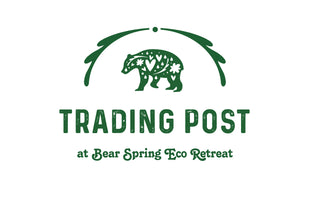Solutions to Help Reduce Waste

I considered writing a blog about the importance of conserving water or the merits of building more bicycle pathways or listing some of my gardening successes. But, then I realized that there is an 'elephant in the room' that no one is talking about. We need to talk about a solution that could fix all of our problems today.
Reducing our consumption.
Our insatiable consumption patterns are literally the driving force behind climate change, social unrest and economic disparity. We are cutting down the Amazon forests to grow more meat to eat, poisoning our valuable top soils so we can have tasteless strawberries in February and are committing thousands of children to slavery so we can drive emission free cars.
When I first opened my upcycle shop in 2011, I genuinely believed that I was solving a problem - a problem of waste. I was horrified to find out that Canada has thousands of landfills and less than 10% of our waste is recycled. How much could I divert by making new products from that waste? Turns out, not enough to make much difference.
In the last decade, despite more awareness and new policies to make recycling collection and processing mandatory, the amount of waste has exploded. We’re actually having a hard time keeping up with the volume. Worse, Canada ships a lot of its waste to poorer countries. Out of sight, out of mind. Except that it doesn’t really go away. It ends up in our oceans and in our bodies. In the last ten years, we’ve produced more plastic waste than in the previous 100 years. And not just solid waste, we’ve created air pollution and contaminated our water too.
In nature, there is no waste.
The eco system operates in perfect balance where waste produced by one species gets used up by another creating a continuous cycle of life. For example, animal digestive systems produce carbon dioxide, feces and urine that eventually get converted into oxygen, food and water through an interconnected system of sunlight, plant photosynthesis, animal consumption and waste decomposition. The earth is essentially a zero waste system.
What is zero waste?
It’s “the conservation of all resources by means of responsible production, consumption, reuse, and recovery of products, packaging, and materials without burning and with no discharges to land, water, or air that threaten the environment or human health. In a zero waste system, materials used, perfectly match consumption levels so nothing is wasted. The production of waste is prevented in the first place as opposed to end-of-the-line waste management. It is a holistic approach that would require a massive change in the way materials flow through our society. A change, that, so far, none of us have been willing to entertain.
There is a trend toward zero waste but reusable straws and coffee mugs just don’t cut it when all the other products you’re using these straws and cups to consume were not sustainably produced or transported to you. We need to start consuming less with a focus on more of what we can produce locally and seasonally.
I always considered recycling to be an immediate, short term solution and hadn’t considered that recycling would actually result in induced demand. I hoped that recycling would eventually be phased out for better design ultimately leading to long term zero waste solutions. Instead of encouraging people to consume less, we’ve created more demand. Consumers feel justified in their purchases because the products are being touted as solutions. 'Energy efficient', 'low emission', 'carbon offsets', 'recyclable', 'plant a tree','biodegradable', 'fair trade', 'organic', 'socially responsible' - these are all marketing terms to get you to buy more. It's greenwashing.
And it’s all connected.
Transportation, shelter and food may all appear to be separate issues but, we can’t have one without the other. That’s where holistic thinking becomes very important. Our current system of private land-ownership connected by private vehicle transportation is a very inefficient way to distribute the necessities of life equitably. Land use influences where we live. Where we live influences what and how much we consume. Transportation connects where we live to the goods we consume. This entire system is unsustainable and actually does quite a good job of disconnecting us further while also burdening us with increasing social and environmental costs. The problems are all becoming overwhelming.
But, we've been working on solutions.
We recognize that we don’t really have that much influence on a provincial, national or global level but, we can make changes on a local level. We already have strict criteria in place for products we select to be sold in our shop. This year we’re making the criteria even stricter. Currently, products must be made in Canada, incorporate recycled materials, be produced in a sustainable manner and/or be zero-waste. All new products sold in Reworks must now be sourced as close to home as possible, 100% recycled and recyclable, sustainably harvested and produced and/or 100% zero-waste and compostable.
Since opening Bear Spring Eco Retreat, we have learned a few things about waste production and traveling as well. People who travel generate a lot of waste. Travellers tend to produce more waste out of convenience, consuming much more stuff they wouldn’t usually consume at home. Many come from cities and don’t realize that in rural areas like ours, we don’t have garbage, recycling or compost collection. They just take it for granted. We are responsible for managing and disposing of all the waste on our property and as such try and keep waste to a minimum.
A family of 4 can fill an entire bin of garbage and recycling in one day. Sadly, it’s mostly food packaging. In comparison, my husband and I might produce one small kitchen bag of garbage a month, but often less. We’re trying to reduce this to zero. To make matters worse, guests mix up the garbage with recycling with compost making for a very messy clean-up job for us. We’ve found diapers in the recycling bin, single-serve yogurt containers in the compost and half-full water bottles in the garbage. It doesn’t really matter how much we lecture guests or install signs asking for help to keep items separated properly, someone makes a mess.
Accepting that this will be an on-going problem, we are being proactive by finding solutions to make it easier for travellers to waste less. We now have two outdoor cooking areas complete with all the dishes and utensils needed to prepare and eat meals. We even have two communal fridge/freezers to store your food and we provide soap and towels for cleaning. Starting in January, we will be working with local farmers, food producers and other experts to develop ‘glamper meal kits’ helping to eliminate waste even further.
Our kits will include locally grown produce and other locally produced ingredients already measured out in reusable packaging. The kits will be tested on our outdoor cooking stoves and BBQs and recipes refined enabling guests to conveniently prepare delicious, healthy meals. Our meal kits will produce zero waste since we will be using the compost in our gardens.
Finally, we are planting additional guest garden spaces so visitors will have more opportunities to freshly pick ingredients for their meals right here on our property. This will reduce the need to transport goods and help eliminate packaging waste. Our herb garden has been a success two years running and we’re excited to be growing a ‘salad bar’ right beside the guest patio. This kitchen garden will feature all the staples such as lettuce, radishes, carrots, peas and more. Excess produce will be available for purchase through our gift shop.
2024 will be a year of transition from conventional practices into a more sustainable tourism operation. We are happy to report that half of our guests are from our local region and the remaining mostly from across BC, Alberta and the US, just south of us. Because of this, we feel it is a responsibility of ours to foster a deeper connection to this beautiful landscape surrounding us. We’re offering locals and visitors alike an experience grounded in meaningful connection to the land and the extraordinary culture and community of the West Kootenays. There is so much to discover in our backyard. We’re breaking away from conventional style vacations with our version of affordable, outdoor-living comforts with unique on-site activities, food experiences, and creative programming.
Zero waste food kits are just the beginning.
Stay tuned for more upcoming exclusive cultural events, unique learning opportunities and on-site amenities that showcase our sustainable practices and help us all reduce waste.


Leave a comment